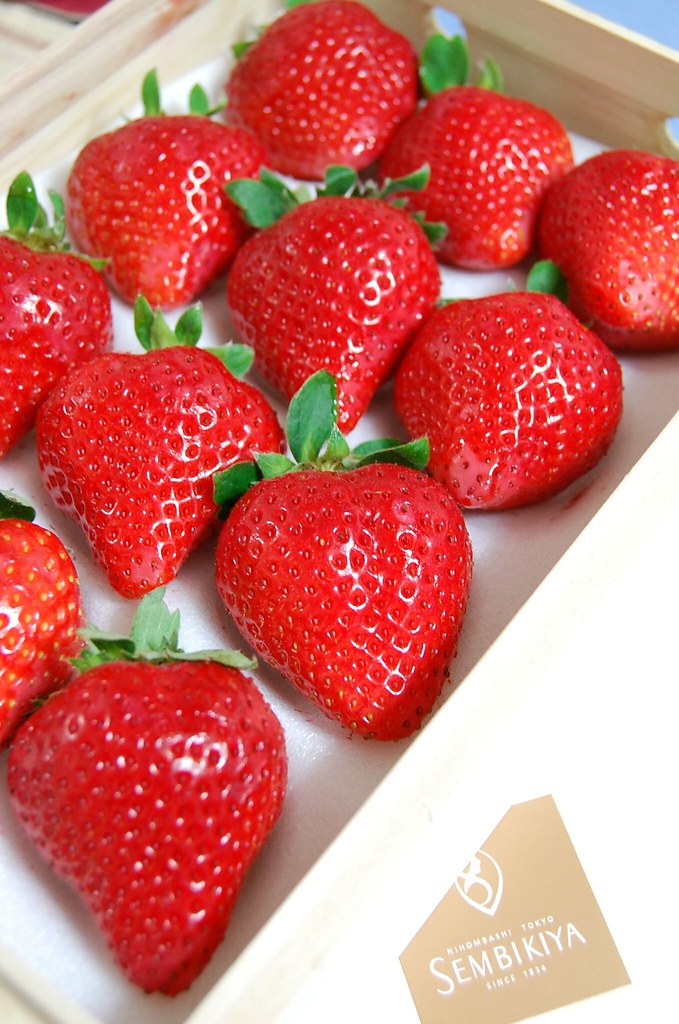When it comes to fruit, $6.99 for a pint of strawberries can seem a little excessive (even if they are organic). However, the goods for sale at Japan’s primary luxury fruit parlor, Sembikiya, makes these berries look cheap.

From a $22 sampler platter featuring a few slices of kiwi to Ruby Roman grapes at $64 a bunch, this shop specializes in all sorts of exclusive fruit. But what makes this particular fruit so special? For starters, Sembikiya employs middlemen to seek out the best batches from across the country at Tokyo’s Ota market. These specimens are pampered far beyond those of a local grocery store: its Queen Strawberries, for example, are specifically crossbred and painstakingly arranged so all of the twelve berries in a box look perfectly alike.

However, even with 11 locations, Sembikiya is not an isolated phenomenon. In fact, many businesses in Japan try to set themselves apart by selling luxury fruit. Some of the most popular ones are molded square watermelons at $212 each (and those are comparatively cheap–some of the highest-end melons can go for sale at upwards of $20,000).

However, even after spending some major cash on this fruit, most people choose to give it away rather than eat it themselves. Offering their family member, friend, or coworker such an exclusive gift is seen as a way to convey one’s respect and regard for the other person. This cultural trend brings a whole new meaning to generosity.

